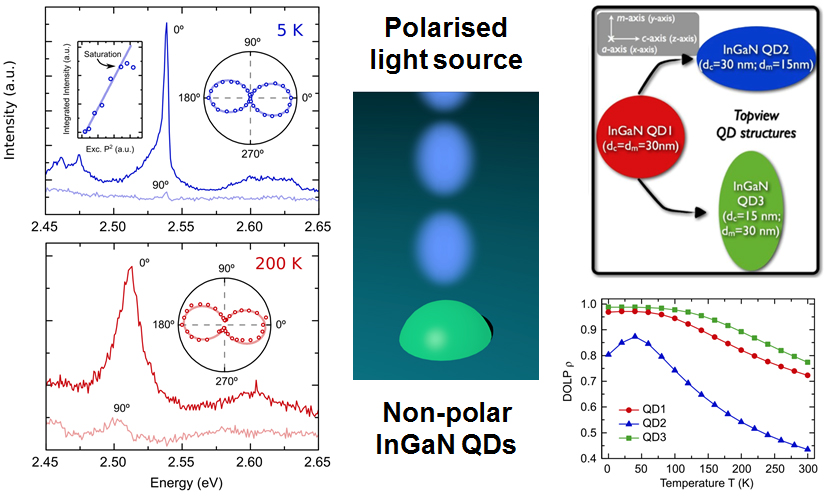Self-assembly of nanostructures is a straightforward way to create structures which exhibit unusual quantum properties. In self-assembly, spontaneous processes lead to the creation of nanoscale structures when the right conditions are provided without the need for painstaking patterning or sculpting of the material. However, such approaches can lead to nanostructures whose size, shapes and hence properties vary quite significantly within a single sample.
In this paper, we show that for self-assembled nitride quantum dots grown on a surface which has a natural asymmetry in its crystal structure, the presence of that asymmetry means that the light emitted by the quantum dots is very highly polarised. Crucially this remains true even when the self-assembly process accidentally leads to quite large distortions in the quantum dot shape. The emission of polarised light is stable up to temperatures accessible using electronic on-chip cooling which makes these quantum dots promising for applications in quantum communications, random number generation and quantum metrology.
Figure: Using self-assembled non-polar InGaN quantum dot system, we demonstrate robust intrinsic optical polarisation controlled by the natural asymmetry in the crystal structure up to the thermoelectrically cooled temperature regime of 200 K.
T. Wang, T. J. Puchtler, S. K. Patra, T. Zhu, J. C. Jarman, R. A. Oliver, S. Schulz & R. A. Taylor, "Deterministic optical polarisation in nitride quantum dots at thermoelectrically cooled temperatures", Scientific Reports 7, Article number: 12067 (2017)

